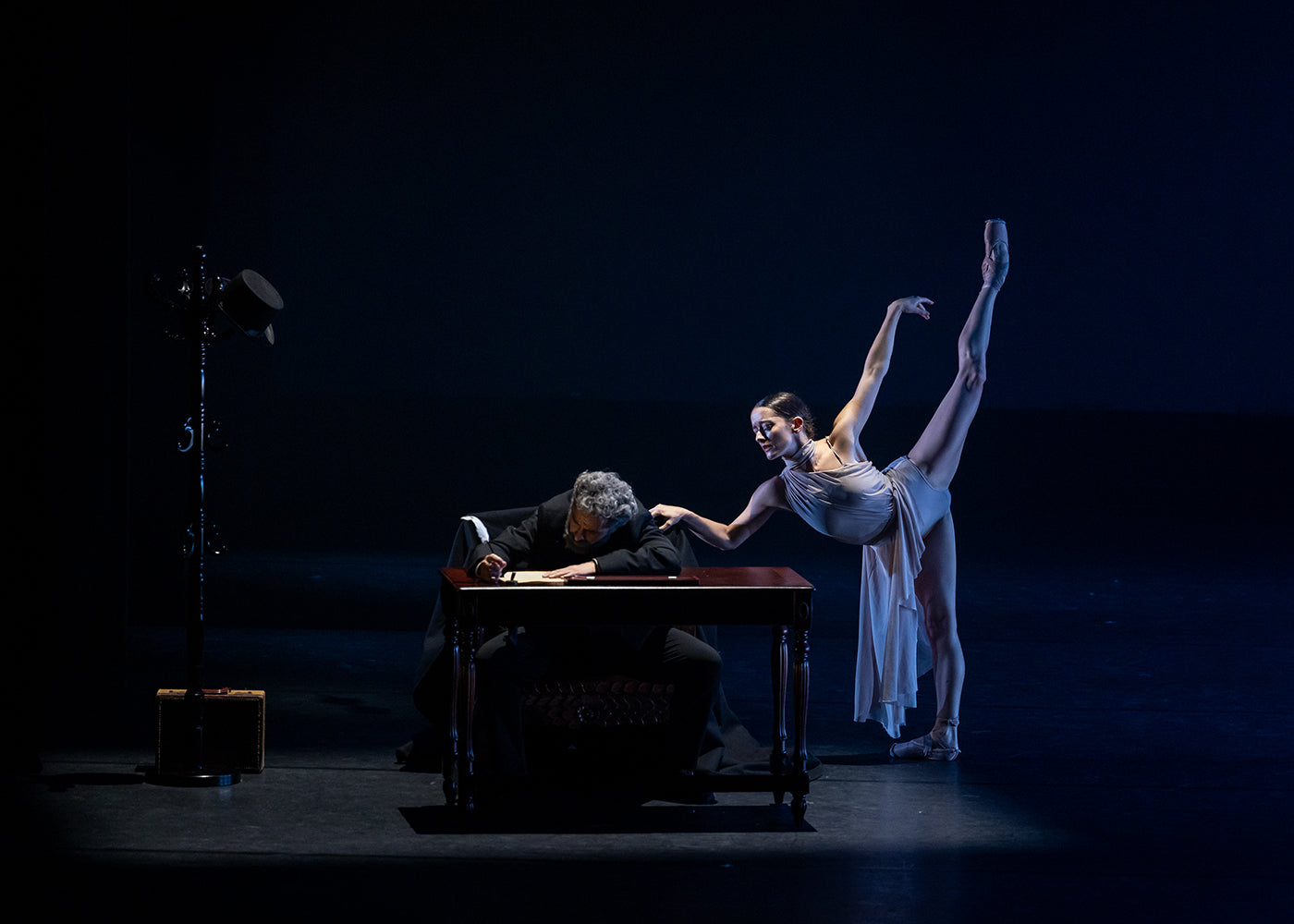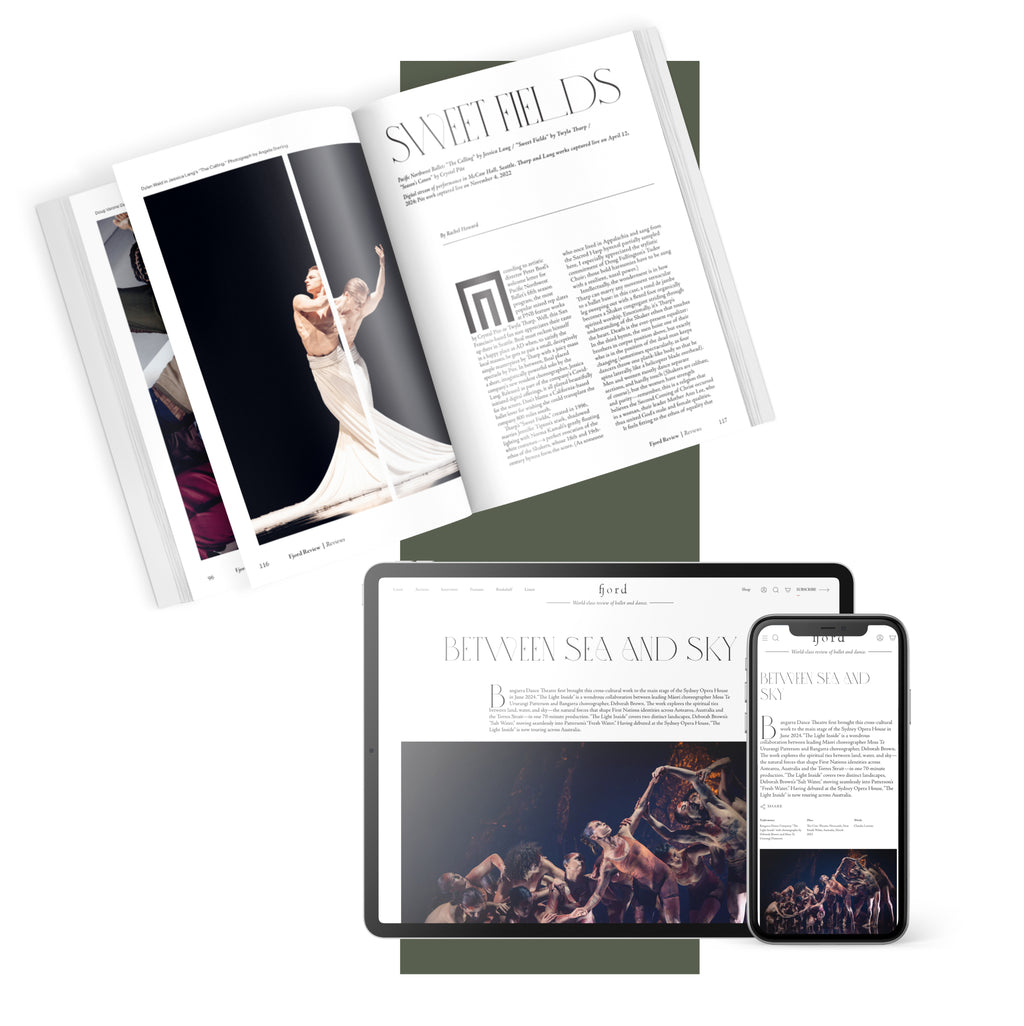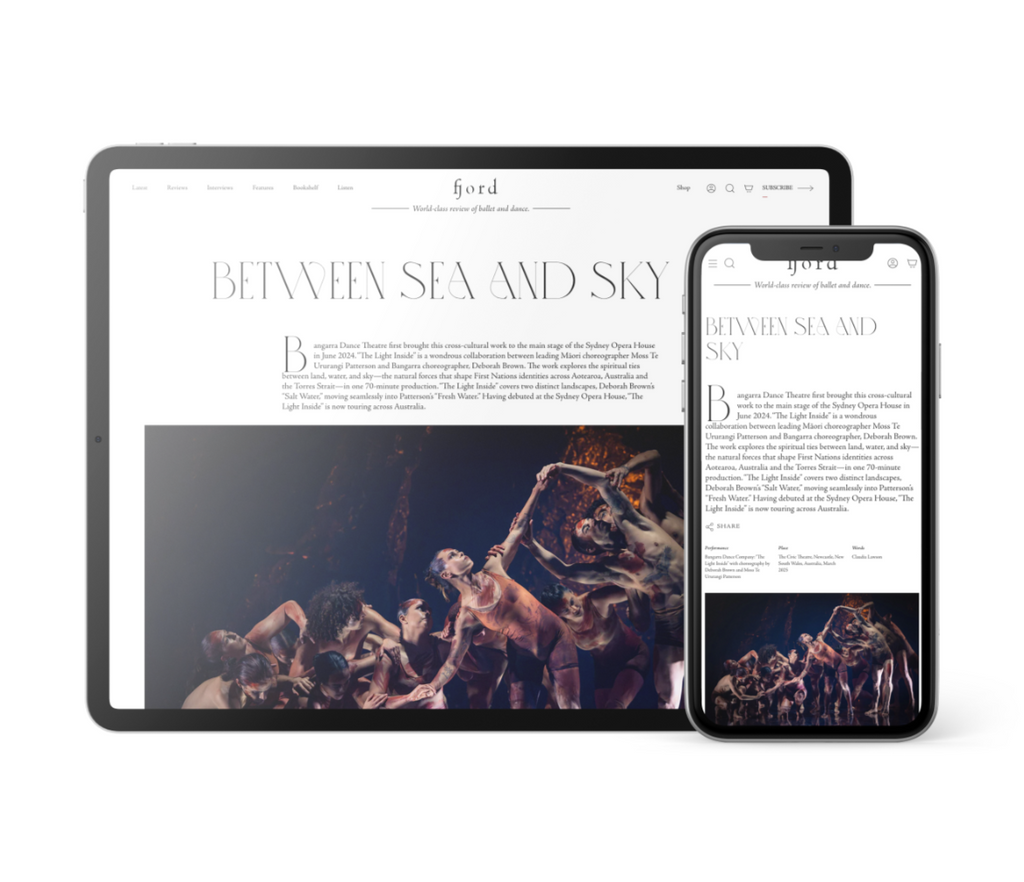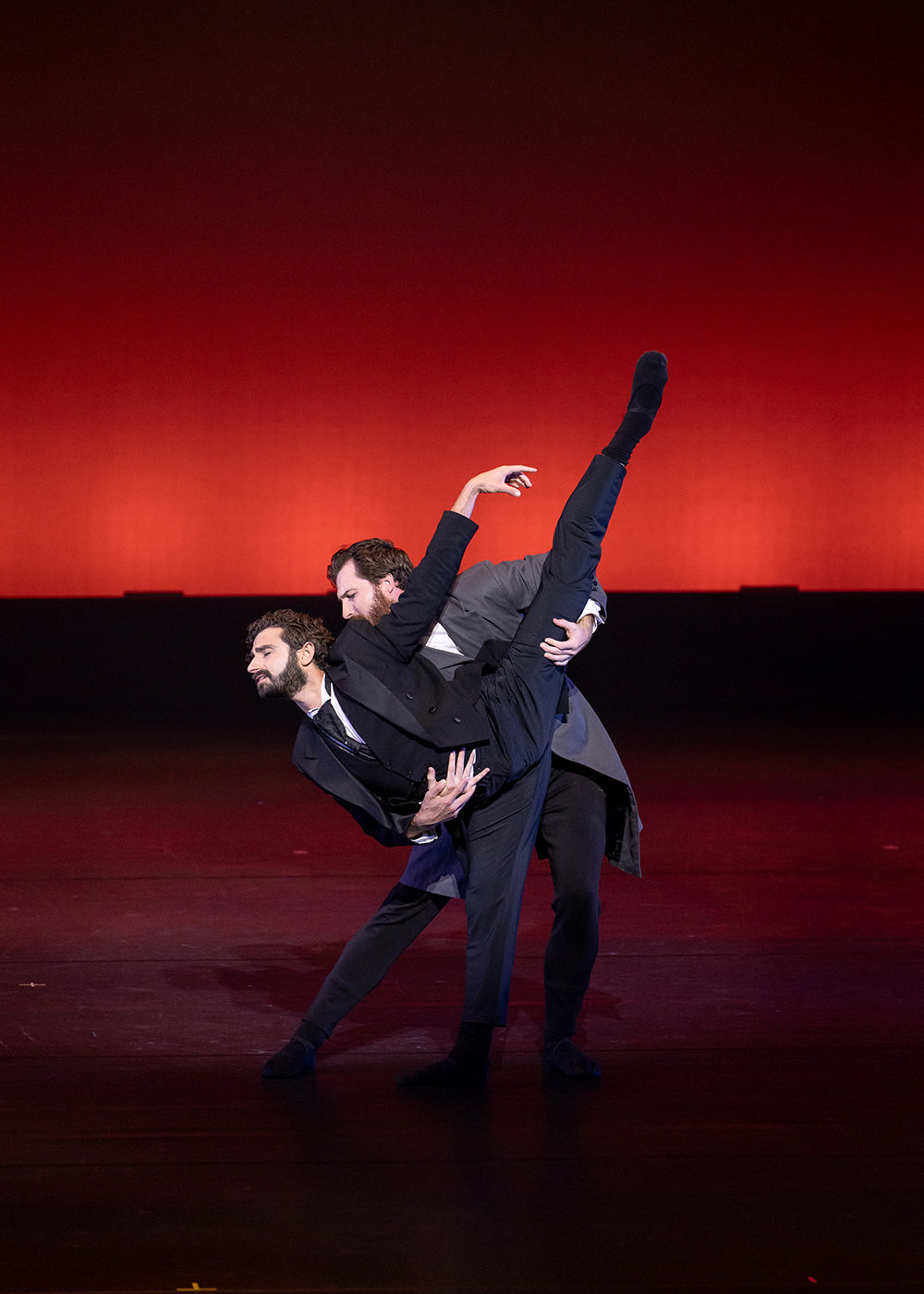The Music Within
Cleveland native Dianne McIntrye received a hometown hero's welcome during her curtain speech prior to her eponymous dance group thrilling the audience in her latest work, “In the Same Tongue.”
Continua a leggere
World-class review of ballet and dance.
The life of Pyotr Ilyich Tchaikovsky does not lack melodramatic potential. The composer of ballet classics such as “Swan Lake,” “Sleeping Beauty” and “The Nutcracker” was celebrated by Imperial Russia for his compositions yet simultaneously forced to hide his homosexuality. The husband-and-wife team Tara Ghassemieh and Vitor Luiz, who previously mounted the acclaimed independent production “The Persian Swan,” recently premiered “Tchaikovsky: A Love Story” on September 5th at the Musco Center of the Arts at Chapman University. A supportive crowd forgave the usual small mishaps that characterize opening night performances. Despite some promising performances, however, the production is marred by a libretto by Roya Zahra Rastegar that is difficult to follow—on multiple occasions, I found myself squinting in the dark to consult the program notes—and, more unfortunately, a reductive portrayal of Tchaikovsky himself.
Performance
Place
Words



“Uncommonly intelligent, substantial coverage.”
Your weekly source for world-class dance reviews, interviews, articles, and more.
Already a paid subscriber? Login

Cleveland native Dianne McIntrye received a hometown hero's welcome during her curtain speech prior to her eponymous dance group thrilling the audience in her latest work, “In the Same Tongue.”
Continua a leggereA man, much to his wife’s chagrin, has a nasty little habit: at night, he turns into a bat and flies out of their marital bed to partake in all kinds of infidelities.
Continua a leggereThe Japan Society continued its Yukio Mishima Centennial Series with a newly commissioned dance work titled “The Seven Bridges (Hashi-zukushi)” based on Yukio Mishima’s short story by that name originally published in 1956.
Continua a leggereLondon is a changed city this week. The cold front has come, and daylight hours have plummeted. The city is rammed with tourists, buskers, and shoppers.
Continua a leggere
comments